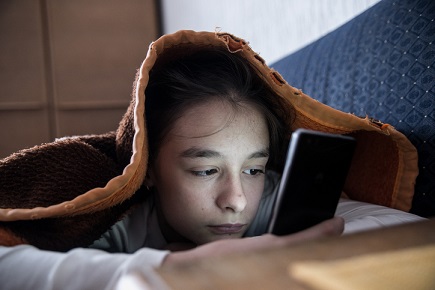
New data from Australia’s Office of the eSafety Commissioner shows children as young as 2-years-old are already accessing the internet.
The latest research from the eSafety Office reveals 81% of Australian parents with children aged 2 to 5 report their children are using internet-enabled devices.
Threats posed by online predators, scammers and malware have prompted some to question the merits of letting children use these devices unsupervised at a young age.
According to some experts, the decision to give a child a smartphone has less to do with age and more to do with laying the groundwork for responsible use.
Kerry Gallagher is a digital learning specialist at St. John’s Prep in Danvers, Massachusetts, and director of K-12 education at ConnectSafely.org.
“You know your child is ready for a device when you’ve talked about responsible use and modelled the behaviour on your own device,” Harvard University’s Usable Knowledge quoted Gallagher as saying.
“If you haven’t done any of this work, then it might make sense to wait another year.”
Consider how the child’s school uses technology
One important idea for parents to consider is to understand how their child’s school uses devices and technology.
Gallagher recommends that today’s digital parents communicate often with teachers about how the school uses devices, how much exposure children have, how they are learning to use technology, and how devices should be used at home for school.
She says that if a child’s school has not initiated a conversation about technology use, then parents must be proactive in asking.
“Add it to the ‘to ask’ list at parent-teacher conferences or consider e-mailing a teacher at the start of the quarter,” Gallagher said.
Talk about technology with your child
Gallagher also recommends that parents begin an ongoing conversation about how teachers use technology, how friends use it at school, and even how they themselves use it.
“Ask questions about what your child enjoys about technology. Is there a game or video that he likes? Find out why. In some cases, it might be a signal that your child is interested in actually doing a similar activity,” Gallagher said.
“Also think with your child about the effects technology has on us.”
Gallagher says parents should think with their child about how they feel after they’ve played a lot of video games, versus how they feel after reading for a while.
“The goal is to help children build awareness and learn, ultimately, to regulate their relationship with devices,” she said.


